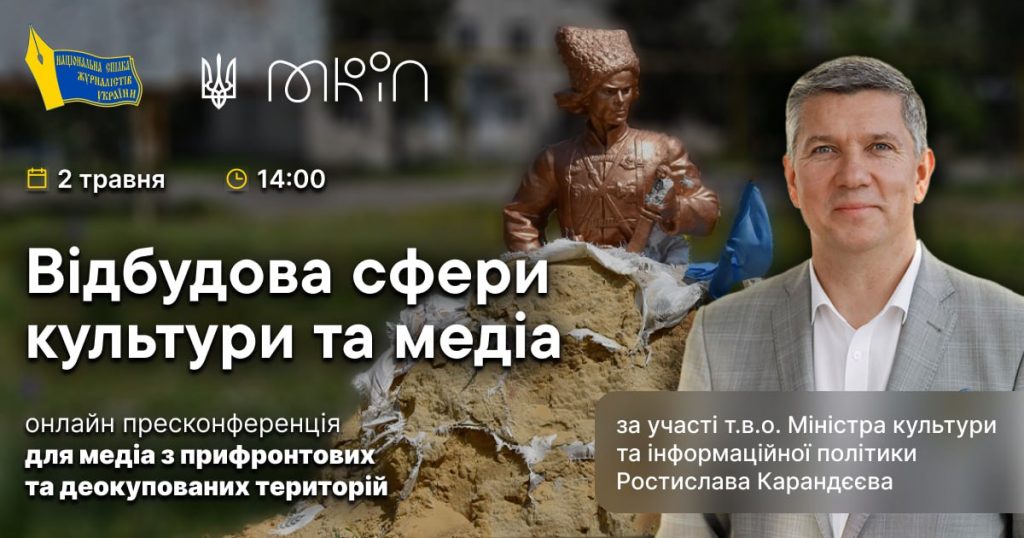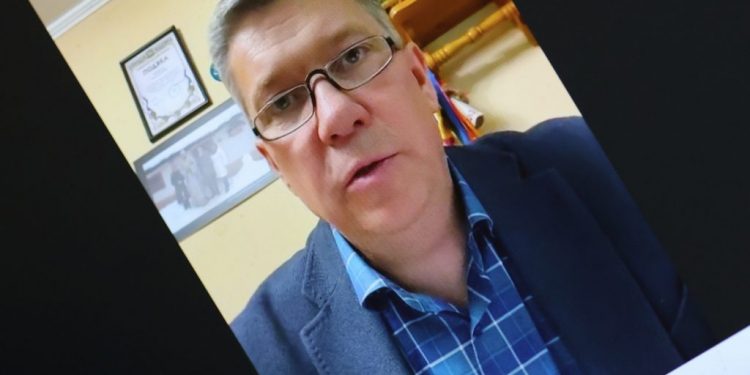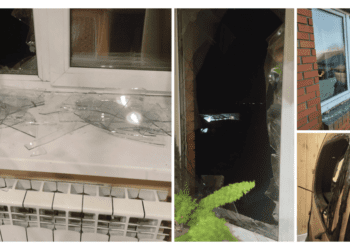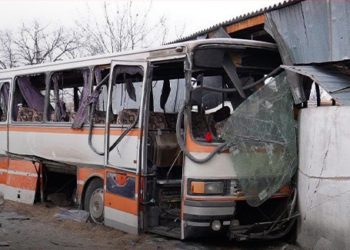In his speech at the online press conference at the National Union of Journalists of Ukraine (NUJU) titled Culture And Media Sphere Recovery, the Acting Minister of Culture and Information Policy, Rostyslav Karandieiev, spoke about the importance of the regional press, cooperation with foreign partners, front-line media, Yedyni Novyny, and many other topics.
Here is his speech:
The regional press is the closest to the people, focused on the local readership. And it is very important – to convey to people objective and true information about events in their region, information that they trust.
But it is worth saying that the Ukrainian word should reach beyond the borders of our country. The military and humanitarian support we have from the outside world depends on how the world perceives us and how world politicians perceive us.
The fight against fakes and hostile propaganda has become the number one issue for Ukrainian journalism. And not even so much by reporting our Ukrainian verified information as by refuting active and powerful actions on the part of the enemy, which imposes its vision of the development of events in Ukraine on the world.
We understand how insidious modern information technologies are, as we ourselves are participants in information processes. However, what distinguishes us from the enemy and the enemy media is that we convey the truth, and this is the strongest motivation in our work. Therefore, when we talk about freedom of speech, we are saying that the world and every person should receive true, verified information. And this task today is mostly entrusted to our regional and local mass media and first of all – to printed publications.
It often turns out that in the front-line and border regions, in the de-occupied territories, there are often no other sources of information but the local press. Where there is electricity, there is communication; people have modern mobile phones and computers, and they can get information about events at the front and in civilian life from television and through Internet resources. But often, these regions have interruptions with light and communication, and then local newspapers become our reliable helpers.
Many thanks to the NUJU and its leaders for making it their priority to support the regional press. I cannot boast that the Ministry of Culture and Information Policy has such a key priority. But now, it will become one of the main tasks for both this and the following years.
Now, we are forming the budget for 2025, and we already see that there are no other options but supporting traditional and individual locations for mass media.
Our Ministry of Culture and Information Policy was not an outsider in this process before, as during the two years of war, with the support of international partners, we provided assistance to several publications from Mykolayiv and some other regions of Ukraine. But we admit that the help given to five editions is not the systemic policy it should be. Therefore, we continue to work on this task and are waiting for proposals from the media community regarding forms of media support.
Today, when both the state and local budgets are chronically short of funds, we are asking for help from our foreign partners and international funds that are ready to help with grants. Our media, which fight for grants, act as modern projects of humanitarian policy to provide true and necessary information services to people, deserve respect.
I would like to thank the staff of the UkrTeleRadioPresInstitut, which works in the State Committee of Television and Radio, for their effective help in disseminating information about donor projects, how to apply for grants, and preparing specialists capable of qualitatively preparing a request for media funding.
It is impossible not to take into account the latest information platforms, which are increasingly active in Ukraine. Telegram, YouTube, Facebook, and a number of other Internet resources have essentially become mass media. Unfortunately, in the pursuit of primacy in providing information, these Internet resources do not always provide reliable and verified information. Therefore, our citizens should develop a critical perception of their messages, content, and sources of information.
Today, our Ministry of Culture and Information Policy implements a number of projects aimed at strengthening critical thinking among the citizens of Ukraine – forming a non-engaged and critical attitude to social and political information through media literacy.
When a person plans, for example, to purchase a product or service, he looks for those that are effective and useful and compares the available information about these products or services. But for some reason we have developed the attitude of an outside observer to social and political information. We simply watch or read, sympathize with the characters of the stories, or condemn them, but after turning off the TV, monitor, or phone and putting aside the newspaper, we return to our everyday chores and forget about the information we received.
Society has not yet developed a sense of the vital importance of information accompanying political processes in the country and the world. The gap between the feeling of participation in political processes and the real importance of each citizen in these processes is evident not only once every few years – during regular elections, but in a permanent process.
This gap prevents us from being critical of the information we receive. We still have to learn to perceive information not as an outside observer to form an attitude towards one or another politician, or political phenomenon through the media. Not only does our country face such a challenge but also the whole world.
Currently, there are discussions in society about the single news telethon. I want to say that the state has made a conscious decision to support this all-Ukrainian channel for the dissemination of true, verified information about events in Ukraine and the international arena.
The telethon is financed from the state budget, and it is not cheap because television is not a cheap business in general. But we understand that with the wide palette of mass media, such an informational marathon is important and necessary for people.
There are also discussions about the participation in the telethon of the single news of certain TV channels (I remind you that there are currently six of them). Today, as part of this unified news project, we want to expand the regional component because regional information really matters to the average person who makes life decisions for himself.
We also consider it extremely important to support the regional press. Among the projects related to the central, nationwide broadcasters, we determine and will submit the budget proposals for next year’s expenditures for the support of the regional press. And again, we plan to turn to donors who can help, because we cannot do it ourselves.
There are separate questions for the regional authorities, which should pay attention to the support of the regional press. In 2018, with the unsuccessful and ill-conceived reform of municipal media, we actually destroyed a huge pool of professionals and mass media that are relevant and important for the general population. We suffer from this even today.
It is important for us to pay attention to the citizens living in the temporarily occupied territories. The challenge is not simple: how to convey true information about Ukraine to the occupied temporarily occupied territory?
The enemy actively and quite effectively implements its decisions in order to limit Ukraine’s informational presence in those regions as much as possible. The occupier controls the Internet and even satellite broadcasting, and the regional Ukrainian press does not reach the occupied territories, of course. There is only shaky hope that there is a small spread of radio and television signals.
World Press Freedom Day is celebrated in May. And this day reminds us all about monitoring how the obligations taken by Ukraine on the way to joining the European Union are fulfilled. As a ministry, we do not always cope with the challenge of convincing and embracing on our side those who should pay attention to our problems with you, make decisions in Ukraine, and influence the budget.
Therefore, we are waiting for comments and suggestions from the journalistic community on how to better build further actions in the information field of Ukraine. Please be active in defending your position and your point of view. And on the part of the Ministry of Culture and Information Policy, we will try to understand all the proposals and support Ukrainian media as much as possible.

Olha Voitsekhivska, Journalist of Ukraine

 THE NATIONAL UNION OF
JOURNALISTS OF UKRAINE
THE NATIONAL UNION OF
JOURNALISTS OF UKRAINE
















Discussion about this post